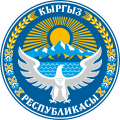|
Abortion in KyrgyzstanAbortion in Kyrgyzstan is legal up to 12 weeks in normal cases. This can be extended to 22 weeks for "social reasons" as agreed upon by a health professional. In cases of medical necessity, abortion is legal at any time.[1] However, a majority of Kyrgyzstan's population is opposed to abortion due to it being considered haram under Islamic law.[2][3] HistoryKirghiz SSRWhile a member state of the Soviet Union, Stalin's law criminalizing abortion was repealed in 1955. It was replaced with a new law that was designed "to encourage motherhood and protect infancy."[4] The decree implied that a majority of women would still seek to have children, and the Soviet government still sought to prevent abortion as much as possible.[5] There is no exact data on how the re-legalization of abortion in the Soviet Union directly affected the Kirghiz SSR, it is fair to assume that it was similar to the rest of the central Asian republics: most of them denouncing abortion due to it being incomparable with Islamic belief.[6] The Kirghiz SSR was predominantly Muslim,[7] which considers abortion as haram.[3][8] Independent Kyrgyzstan Since the dissolution of the Soviet Union, the rate of abortion in Kyrgyzstan declined 66%, going from 90 abortions per 1,000 women in 1990 to just 31.[9] The country is a member of the Organization of Islamic Conferences, and is one of the few members to allow unrestricted abortion.[10] 2015 research by the Ministry of Health of the Kyrgyz Republic put the figure of abortions per 1,000 births at 140.6.[11] While abortion is perfectly legal in Kyrgyzstan, but due to the heavy amount of Muslims in the country, many doctors have expressed concern. One female doctor in Osh told a researcher with the University of Minnesota said that she no longer counsels women about abortion options, nor does she perform them as "she now feels afraid to do so."[12] Most women face social pressure to not get an abortion, due to the rising influence of Islam in the country.[13][14] LawsAbortion is not mentioned in Kyrgyzstan's constitution, although it does state that women and men will have "equal rights and freedoms and equal opportunities for their realization."[15] The official law on abortion, called the Law on Reproductive Rights of Citizens, legalizes abortion on a number of cases. It states in part that technology must be developed to help protect reproductive rights, and that abortion should be provided in the event that a woman wishes to terminate her pregnancy.[16] According to the United Nations, abortion is legal in Kyrgyzstan in cases of saving a women's life, saving her physical health, and saving her mental health. The same report states that the rate of abortion in Kyrgyzstan per 1,000 women is 12.4 as of 2011. A majority of the population, however, views abortion as immoral.[2] Kyrgyzstan is a Muslim-majority country, and thus the social ideas of the population are shaped by the religion.[17] References
|
